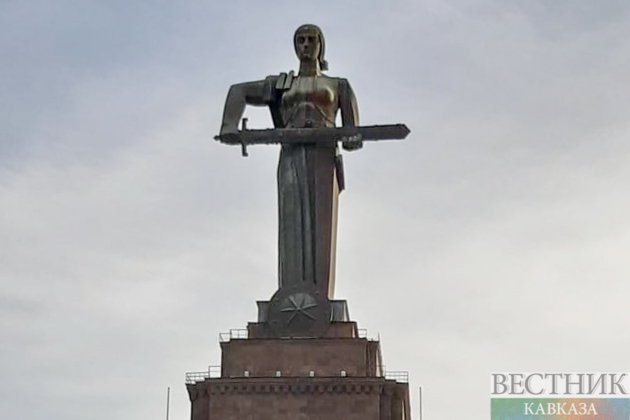In the summer of 2020, before the start of the Second Karabakh war, Armenia tried to implement the idea arming women to strengthen its army in Yerevan. Then, during the 44-day war, Anna Hakobyan, the wife of Prime Minister Nikol Pashinyan, made harsh statements and made several populist steps, such as the creation of the Erato women's unit. At that time, in Armenia the first women's company was even being trained to participate in hostilities on Azerbaijani territory.
The Armenian Defense Ministry is drafting a bill that would substantially broaden the role of women in the country's armed forces.
The Armenian military has been in a constant state of upheaval since the defeat to Azerbaijan in the 2020 Second Karabakh War. While some say that recruiting more women would have the obvious benefit amid Armenia's security situation, some experts point to the difficulty of trying to ensure gender equality in such a patriarchal environment.
According to Eurasianet, the initiative was announced by Deputy Defence Minister Arman Sargsyan on January 11:
The Ministry of Defense organized shooting courses for women, and the results pleasantly surprised the leadership of the defense department. Taking into account these and other factors, it was decided to start discussing relevant legislative initiatives
Military service in Armenia is compulsory for male citizens of the republic aged 18 to 27 for a period of two years. At present women serve in the Armenian military only on a contract basis. They accounted for 9.1 percent of contract service members in 2019.
Military reform stalled
Following Armenia's defeat in 2020, the country embarked on a comprehensive military reform program. Presenting his five-year government plan for 2021-26 Prime Minister Nikol Pashinyan called for more women's involvement in combat units, emphasizing that women make up the majority of the Armenian population. The aim is to make the most of this potential. But nearly two years later no general concept for army reform has been adopted and little progress has been made, though in March 2022 the Defense Ministry announced that a women's rifle company had been established.
The lack of progress can be attributed in part to the regular shakeups at the top of Armenia's defense establishment in the aftermath of the war. Since then, both the minister of defense and chief of the General Staff have been replaced three times. The most dramatic moment was in February 2021, when the top army brass, led by the then-Chief of the General Staff Onik Gasapryan, joined the opposition's demand for Pashinyan's resignation. This conflict was resolved by the dismissal of Gasparyan.
Steps were taken to rebuild the army on the Russian model, but due to a number of well-known circumstances, the idea could not be realized. Other components of the reform include boosting the reserve force, and loosening gun ownership restrictions for civilians. Problems also arose in the process of re-equipping the army. Prime Minister Pashinyan publicly complained about Armenia's failure to receive armaments from allies even after they were paid for. He did not name a specific state, though it was clear he was speaking about Russia.
There's no escape from traditions
"Women commanders need to make two or three times more effort so that the men subordinate to her take her seriously, obey her, and follow her commands. This problem really exists," one female officer who left the army after 10 years of service said.
Armine Margaryan, a military expert and former staffer of the Security Council of Armenia, co-authored a study published last June on military reform. She told Eurasianet that the "tradition" of gender discrimination makes life difficult for women in the military. It hinders their professional growth. The problem here is the prejudices of the vast majority of male bosses. She says that the reform agenda should be aimed at providing the necessary conditions for the effective involvement of women in the military service, encouraging the participation of women in decision-making at all levels, as well as the effective implementation of social guarantees. Margaryan proposed that one way to subvert the patriarchal mentality would be the formation of all-female units as the Armenian Ministry of Defense created in 2017 for involvement in NATO peacekeeping missions in Kosovo, Afghanistan and Lebanon.
But what about Anna Hakobyan - the main initiator of the female presence in the troops? In September 2020, she unveiled a program that envisaged women aged 18-27 taking a 45-day basic military training course, after which successful participants would be able to join the regular armed forces. Hakobyan appeared in public several times in military fatigues, but after Armenia's defeat the idea was scrapped and shedistanced herself from the cause.






